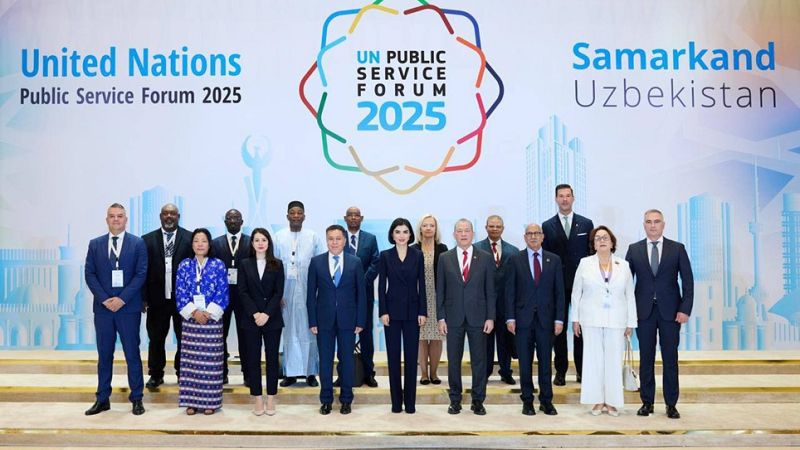
This week, Uzbekistan's historic city of Samarkand became more than just a host city.
As the 2025 UN Public Service Forum opened its doors for the first time in the country, it became a stage for a vital question facing governments worldwide. How do public administrations serve better, faster, and fairer in the digital age?
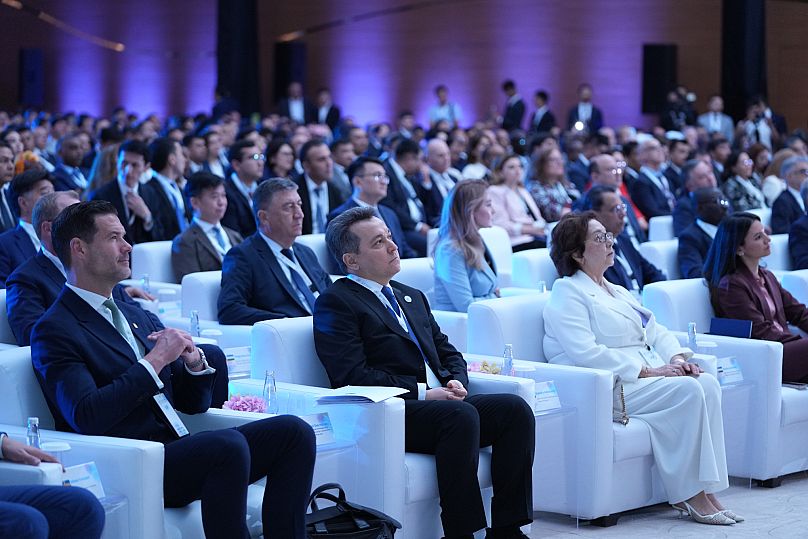
Albania's minister of public administration and anticorruption, Adea Pirdeni, who attended the Forum, told Euronews about the country’s digital journey, from began with just a handful of online services to a full-scale transformation.
“When Albania began its digital transformation in 2013, just 13 public services were available online. Today, that number exceeds 1,200, covering over 95 per cent of all services”, said Pirdeni.
“Digital services reduce corruption by removing physical interaction, cutting queues, and creating transparency. Citizens no longer wonder who’s behind the counter. They simply get the service”.
Pirdeni emphasised the importance of accessibility, noting Albania’s efforts to support elderly citizens and those with impairments. “Efficiency means little without inclusivity,” she added.
She also said old habits mean civil servants can resist innovation. “It’s not rejection. It’s habit. That’s why we train them in AI, challenge bureaucratic thinking, and encourage them to become reformers themselves”.
Albania is now developing AI-powered tools to improve public procurement transparency and training public servants to adopt generative AI across government functions — a move supported by international partners. “Digital systems are only as effective as the people who use them,” Pirdeni said.
Uzbekistan's digital momentum
Host country Uzbekistan used the Forum to spotlight its own progress. In just two UN assessment cycles, it jumped 24 positions in the global E-Government Development Index. With over 760 services now available via a unified online portal, and more than 11 million users, the country has built what the country's digital technologies minister Sherzod Shermatov called a “citizen-first” system.
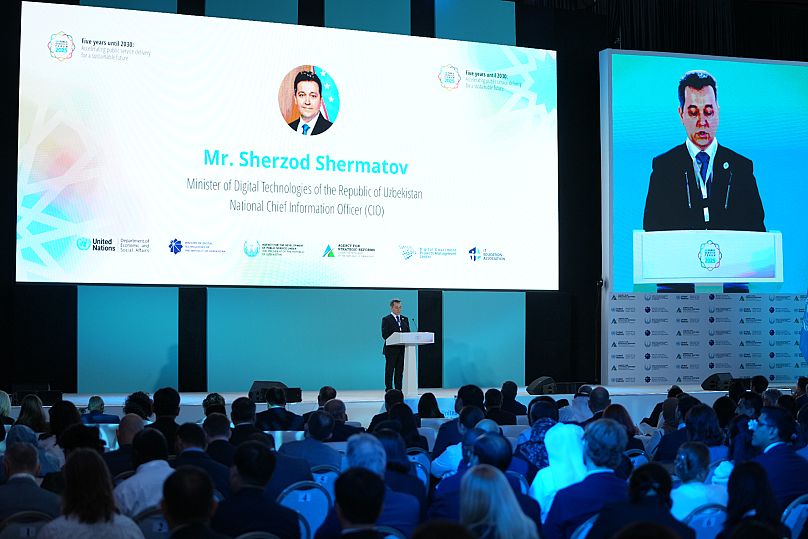
“We’ve created a digital government platform that processes over 12 million requests a day,” Shermatov said. “And we’re just getting started. By 2025, IT exports will hit 1 billion dollars, and we’re launching a national cloud platform and training one million AI prompters”.
The country’s GovTech strategy now integrates over 390 services from 49 government agencies through a single digital ecosystem.
Uzbekistan also plans to build 20 data centres in partnership with private investors, aiming to boost capacity and ensure digital resilience. According to Shermatov, these steps are part of a broader shift toward smarter governance - one where automation, open data, and public trust go hand in hand.
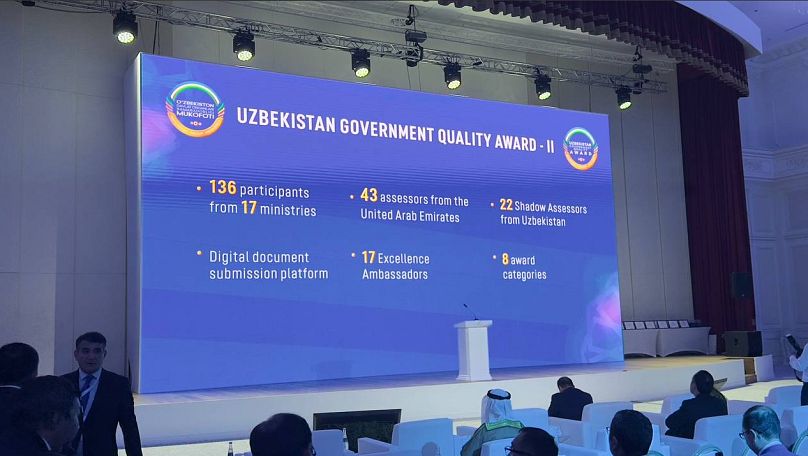
Mobile public service centres
In Georgia,** digital access is no longer limited to urban centres. The country's justice minister, Georgia Paata Salia, described how the country’s mobile public service centres, vans equipped with full digital infrastructure, bring over 500 services to rural communities. Their new e-wallet initiative aims to give every citizen access to digital documents through biometric authentication.
“These tools make our system more efficient,” Salia said, “but they also reconnect people to the state, especially those who felt left behind”.
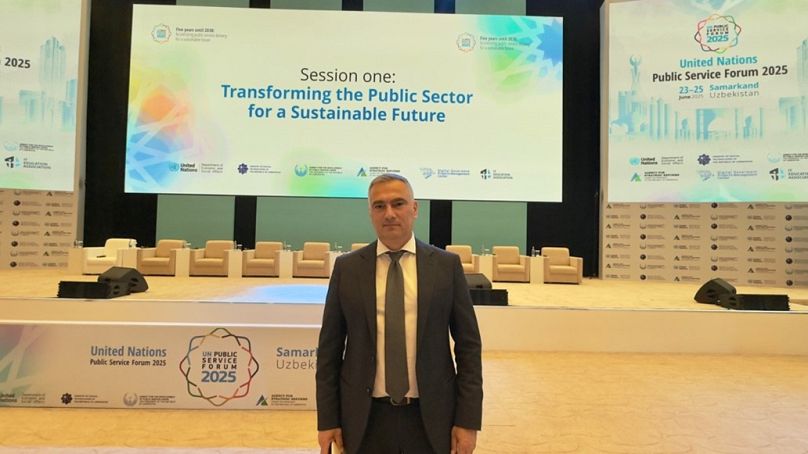
Georgia has also introduced a law on data protection, established an oversight body to regulate privacy, and created online platforms that allow citizens to transfer property or access notary services without visiting an office.
Trust, paper, and transformation
Not all states are at the same stage.
“In Bosnia and Herzegovina, we still use too much paper,” said the country's justice minister, Davor Bunoza.
“But the path is clear. Digital tools are crucial for restoring trust in public institutions, especially after years of complexity and fragmentation”.
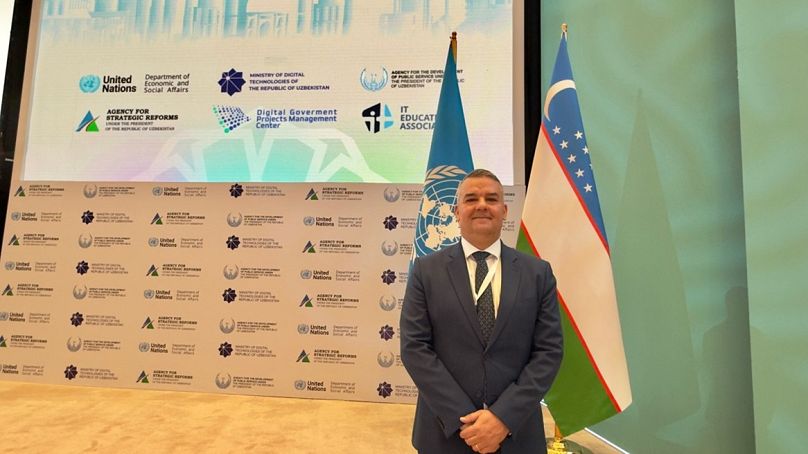
Bunoza noted that with Bosnia and Herzegovina recently entering EU accession negotiations, there is growing momentum to reform the justice sector and modernise public administration.
He pointed to Uzbekistan’s progress as a source of encouragement, particularly in reducing bureaucracy and investing in citizen-facing platforms.
Collaboration over competition
Held under the theme “Five years to 2030 accelerating public service delivery for a sustainable future,” the UN Public Service Forum brought together ministers, technologists, and reformers from more than 100 countries.
With Uzbekistan hosting the event for the first time, the gathering underscored how digital transformation is becoming the default agenda not just in capitals but across continents.
Saida Mirziyoyeva, who has recently been appointed as head of the presidential administration, delivered the official speech on behalf of the President of Uzbekistan at the opening of the UN Public Service Forum.
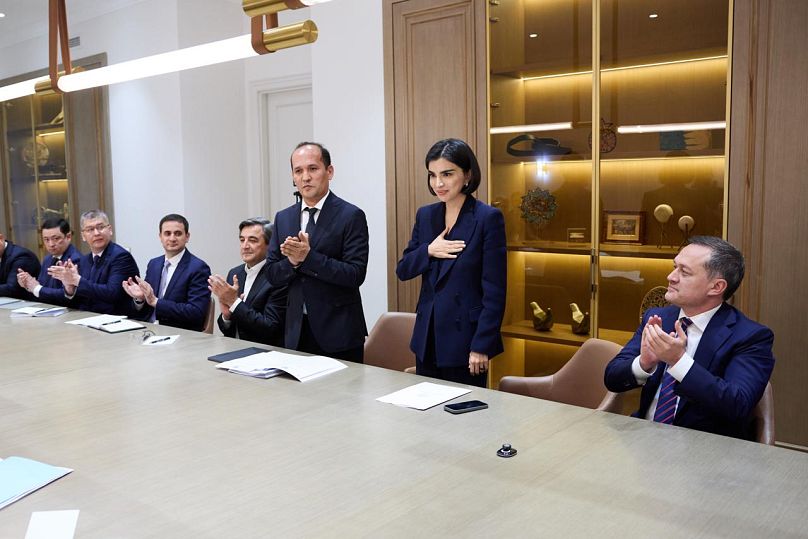
In his address, the President emphasised the urgency of transforming public service in light of global challenges such as climate change, political tensions, and digital threats.
He highlighted Uzbekistan’s ongoing reforms, including a new Public Service Law, increased women’s participation in public administration (now 35 per cent), and the expansion of online services through a one-stop “single window” system.
He noted that Uzbekistan rose 24 places in the UN’s global e-government ranking and proposed launching two international initiatives: a Global Knowledge Centre for Digital Transformation in Public Service and an International School for Young Leaders.
The President expressed hope that the Samarkand Declaration would become a roadmap for inclusive, people-centred public service reforms worldwide.
The country’s 208 Public Service Centres and the national my.gov.uz portal were often mentioned in discussions as examples of accessible design. These platforms are used not only by individuals but also by businesses and regional governments, illustrating how digital public infrastructure can scale.
“We see ourselves as part of a global community,” said Shermatov.
“Digital transformation isn’t a race, it’s a collective responsibility,” he added.







